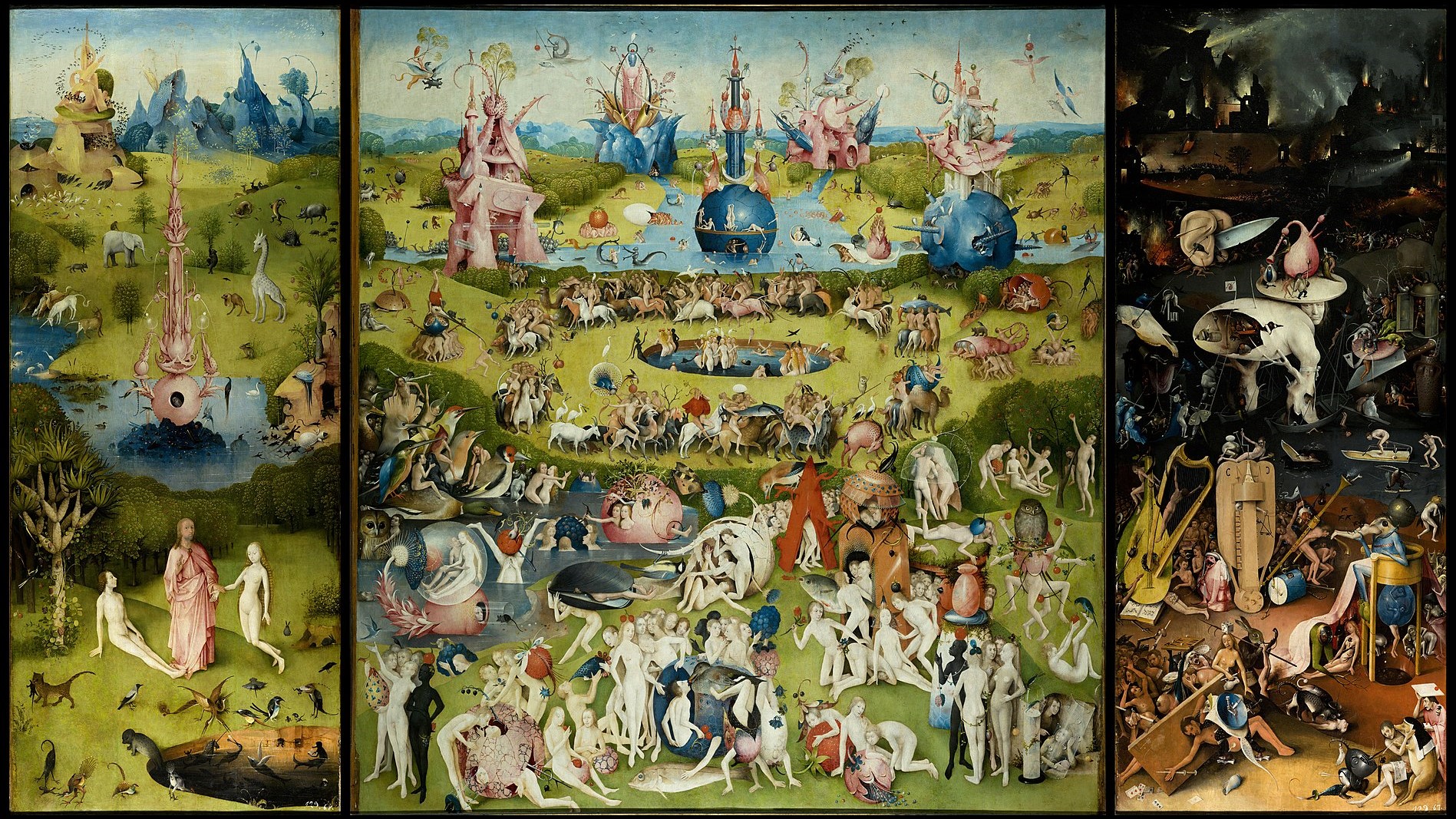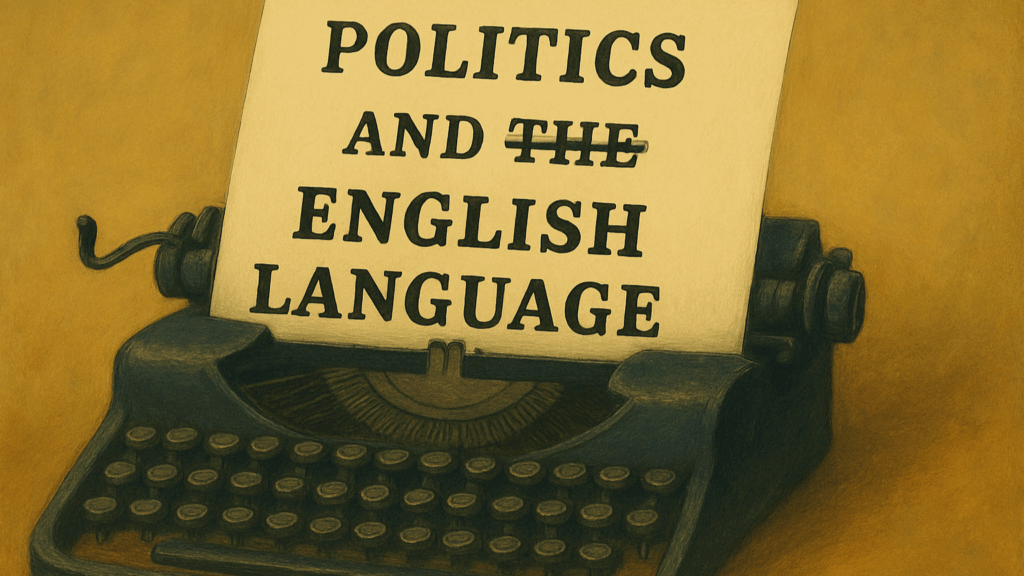In my previous essay I warned about the dangers of utopian ideologies and argued that Burkian conservatism could be a beneficial antidote. Yet, we are still left with another elephant in the room: What kind of society has left us in this liberal utopian dream? As the Chinese philosopher Sun Tzu famously put it in The Art of War: ‘Know thy enemy and know yourself; In a hundred battles, you will never be defeated.’ As many conservatives have for decades been wilfully oblivious to the cultural changes in society and focused on economic growth, it is time to raise the awareness of the ideological battle between the classical liberal and conservative camps.
As the legitimate authority of the West and the institutions that traditionally form its civil society (ie family, community, and Church) have collapsed under the pressure of the unlimited freedom of liberalism, consumer materialism has replaced its place. It is the end result of the hedonistic whims and addictions of our decaying mind that attempt to distract us from pure and insurmountable nihilism.
The Economic Construction of Reality
As technological determinism has captured our modern society, human culture has been overtaken by economic forces that have annihilated the influence of social and cultural structures. As consumer economics has become the central determinant of the individual and collective personality, the institutions that are left to deal with the chaos know nothing but to facilitate consumerism. This is what the clinical psychologist John F Schumaker in his book The Age of Insanity calls the ‘economic construction of reality’, which replaced the cultural one. As it has become the totality of our being by replacing the role of religion, it has increasingly determined our values, meaning systems, relationships, goals, lifestyle arrangements and daily routines.
As consumer objects have acquired social meaning, they have embedded cultural codes, or what the evolutionary biologist Richard Dawkins famously called ‘memes’ in The Selfish Gene, to determine cultural differentiation among people. An archetypical contemporary example is the rise of Andrew Tate to celebrity status. With his focus on consumption as a token of success and strength, he embodies the man who desires to fill the modern void, but is unable to do so. While he motivates young men to gain enough money to buy an expensive sports car, one should ask themselves why Tate is so persuasive.
‘Today we are living with a grotesque spectacle of unrestrained material production, perhaps the greatest and most pervasive evil to have emerged in all of history’
As modern consumer society has made consumption the root of identity, man has become a prisoner of the constant renewal of consumer demands. He has foregone shame and adopted banality as well as a superfluid core of his identity. Contrary to early capitalist societies, people have completely reduced themselves to the self-as-consumer. The short excitement that accompanies consumption is all that modern man has left. As the American anthropologist Ernest Becker describes modern consumerism in Escape from Evil: ‘Today we are living with a grotesque spectacle of unrestrained material production, perhaps the greatest and most pervasive evil to have emerged in all of history.’
Consumer society has become a pathway to cultural heroism. Once again, Andrew Tate is an exemplary case of the path we are currently pursuing. Tate ‘beats the Matrix’ by disguising moral weakness with his own form of a caricature of masculinity and its own moral weakness. At least it is good for some irony.
To be fair to consumerism, it has also done some good(s) for society. Most importantly, it has made essential goods more affordable and accessible. Thereby, it has given more leisure time to people at large. Detrimentally, this time has been mostly filled by more pursuit of money and consumption which has, as philosophers such as Oswald Spengler and Friedrich Georg Jünger predicted, in the end taken away the life advantage offered by consumerism. In theory, people could accept their leisure time, but as consumerism has become the dominant cultural factor, modern man cannot stop but work towards more consumption.
The Consumer Game of Misery
As we have seen how consumerism has nested itself in society, the stage is set to understand the grand effects of this manifestation. As the celebration of material goods has distanced us from the deeper timeless plane of existence, man has become the servant of an uninspiring and nihilistic search for solutions to one’s artificial tensions and false needs. This only leads to dullness and style instead of fulfilment and character, as there is no grand meaning to be found in consumerism. This endless loop is what the social scientist Jerome Braun calls the ‘dream factory of endless consumption’.
Our minds become increasingly conditioned to strive for economic productivity. Therefore, wisdom on how to lead a good life is not only becoming less common, but it also becomes ridiculed due to its lack of direct contribution to economic productivity. Like a child who does understand and protests when he or she has to learn mathematics at school, man has reduced itself to a juvenile caricature. It is tragic as we are, not for nothing, called Homo Sapiens (Wise man). Nowadays, it is more accurate to call what we have become Homo Economicus (Economic Man). Homo Economicus, with its lack of wisdom, uses consumable escapism and hedonistic self-gratification to become the loyal soldier of consumerism. Even the consumer goods that Homo Economicus strives for are different from those of Homo Sapiens. As Homo Economicus is primarily interested in consumption for its own sake, goods and services have been decoupled from their original intentions of longevity and quality in daily life towards ‘fashionability’.
To be fashionable and fit in with popular lifestyle, man needs to continuously strive for more consumption. This traps human beings in a low-level state of consciousness where they operate not so differently from a ‘consumption search engine’. This dreadful state is what is often described as a state of ‘unhappy consciousness’. It is the ultimate price that modern man pays for its consumer ideal. He is psychologically forced to abandon the traditions and wisdom of our ancestors to compete in a consumer contest of misery. Those with the highest amount of self-estrangement have become victorious. The final sacrifice has been the self. As morality is reduced to consumer utilitarianism, man has opted to commercialize the self. Those who in this competition have fallen short have, more often than not, been unable to quit this game without winners to begin with. Crushed under the weight of consumerism, they hold hope for a better tomorrow as they have internalized the cultural endorsement of the exploitation of the self. They hope that following the rules of the consumption game will in the end release them of their curse of misery.
The game is often envisioned by its glory days during the 1990s. As a consequence, many have tried to emulate the archetypical ‘Wolf of Wallstreet’. Although people, with their gifts of adaptability and creativity, can fool themselves for a long time, at some point, when the curtains fall, they realize that they have lived as a prisoner of low-level discontent which has spoiled their character.
By amplifying greed and avarice, Homo Economicus has increasingly made its lifestyle consumer-based. People have become more and more dissatisfied with living merely a ‘comfortable life’. Therefore, the once looked down upon ‘living beyond your means’ has now not only become common, it has become the default for the exemplary country of consumerism: The United States. In the US, saving rates have turned below zero to afford a consumer lifestyle. By hyperbolic discounting, disregarding the consequences of continuous debt and consumption in favour of immediate gratification, people have put the financial and psychological stability of their lives on the line to feel like a worthwhile member of society, even if it is just for an instant. As the American novelist Thornton Wilder wrote in The Bridge of San Luis Rey: ‘the people of this world moved about in an armor of egotism, drunk with self-gazing, a thirst for compliments, hearing little of what was said to them, unmoved by the accidents that befell their closest friends, in dread of all appeals that might interrupt their long communion with their own desires.’
The climax of our consumerism is that it has an underlying positive feedback loop. Consumerism has increased greed as well as decreased personal growth and creativity along with social awareness. It has only left a constant and immediate need for gratification that has caused us to lose a sense of anticipation. It has saturated us beyond our means, which in turn has led to sadness, anxiety and depression, and an overall emotional void. Consumerism is the only language that is still spoken, and therefore this void increases as it is constantly filled with more consumerism. The end result has been what the psychoanalyst Philipp Cushman has called the ‘empty self’. People view themselves as empty entities that require to be filled. As consumerism does not fill this void, and only inflates our ego instead, the despair grows endlessly. This leaves us in a state of permanent emptiness. Ironically, the modern dream of ‘just being yourself’ is therefore merely an illusion. What would be more accurate would be: ‘just lose yourself’.
The Pathological Consequences of the Empty Self
As we unveil the bleakness of consumerism, we start to see it for what it truly is. I would summarize it in Schumacher’s definition of materialism: ‘A cultural system in which material interests are not made subservient to other social goals and in which material self-interest is preeminent.’ Just like the experience of highly addictive drugs, this materialism creates initial satisfaction. Yet, this satisfaction creates a chain reaction of new desires, which in turn become decreasingly satisfying. In the end, we are left with the ‘sadness after intercourse effect’. This is named after the common experience that after intense material satisfaction (eg sex), sadness can overwhelm us due to the fact that, on a material level, barely any need can meet the intensity of the material experience. Comparatively, as everything seems dull, man is overcome with emptiness and/or sadness.
Even though most people have had to endure a decrease in life satisfaction and mental well-being due to consumerism, an increasing amount of people have been captured by pathological consumption, also called consumption disorders. As pathological consumption has increased, so has the pathological impulse. The most famous example, compulsive buying, has been officially recognized in 1989 as a psychological disorder. Ever since, we have seen other forms of pathological consumption such as pathological gambling, binge eating, compulsive sexuality, and kleptomania on the rise. Currently 5.8 per cent of Americans suffer from a consumer disorder throughout their lives, with this number increasing, especially among young people. 15 per cent of Americans currently have a consumption disorder or are at risk of developing one. No accurate data has been found on the prevalence of it in Hungary. But as the West in general follows the same trends regarding consumerism, consumption disorders will most likely be an issue here as well, if they are not so already.
‘This is what makes pathological consumption so problematic. It takes over the life of its host’
When we dive deeper into the psyche of the pathological consumer, we see the empty self at full display. One would probably assume that people with consumer disorders have more desire to buy things or have a greater desire for possessiveness as they in fact consume more things. Yet, this is in most cases actually not the case. The emotional void that pathological consumerism feeds often makes people exist in lower levels of consciousness. Many people with consumer disorders therefore often describe their behaviour as ‘trancelike’ and automatic. Often they do not remember their ‘consumption attacks’. This is what makes pathological consumption so problematic. It takes over the life of its host.
As consumption increases and the emotional void therefore strengthens, people feel increasing personal powerlessness, social alienation, cultural inadequacy, and the inability for delayed gratification. It often makes people unable to escape their pathology. Lastly, while consumerism is destroying their lives, people often cling on to the fantasy of emotional re-attachment and coping through consumption. Especially among people without proper socializing mechanisms such as a stable family or community, the grip of pathological consumption is fast. As Cushman warned us, as long as we do not strive for a cultural and socio-political change, we will see a rapid increase in pathological consumption as consumption takes over our lives.
The Antidote to Consumerism
Even though not everyone is luckily captured by pathological consumption in its clinical definition, it is still important to conclude that while the utopian dreams we had have come crushing down, we are in a dire need for the restoration of Western sensibility. The antidote to consumerism on a practical level is straightforward: a simple lifestyle intended to maximize direct control over daily activities and minimize consumption and material dependency. Only when it is done voluntarily can one escape the consumer game and pathological consumption. This demonstrates another example where the conservative focus on social and cultural embedders instead of material gain is in line with human flourishing.
The question remains: if the answer is so simple, then why are we still in this deterministic consumer society? In theory, 50 per cent of people would trade material possessions and income for reduced stress and a better relationship with friends and family. Yet, as people have no real way to make this trade-off a reality, they stay with what they know. The agony of consumerism is often attempted to be countered by more shopping. Nearly two-thirds of Americans use shopping as a ‘therapy’ to relieve stress. Who needs the psychologist when one can just get an iPhone instead!
Is nobody able to loosen the grip of consumerism? Luckily it is not the case, as ‘simplicity circles’ are emerging as a local antidote to the addictiveness of consumerism. Simplicity circles are small groups wherein people voluntary help and check on each other to reduce their consumer lifestyle. Thousands of such groups have appeared in the West. Moreover, a small yet increasing group of people are trying to escape the urban surroundings that has the strongest consumer culture by moving to the countryside, and forming small communities. It is almost as if, like Burke described, the ‘little platoons’ of family that form a community of families is a more successful recipe than mere consumerism. Although these initiatives are a step in the right direction, they are unable to truly turn the tides. Therefore, to truly ‘heal’ our consumer society, it is necessary to restore the legitimate authority of our little platoons, so that the love of our family, community, and country can restore social structures and society as a whole.
The Consumer Power Hierarchy: The Enemy of Civil Society
The last elephant in the room is this. If we have already known for decades how bad consumerism is for individuals and our society, why are we still here? We cannot hide beyond the hardship of the individual to take away the responsibility of the institutions in our society.
As the institutions have weakened and the economy has detached from the human domains it was once connected to, lobby groups and big corporations have partly taken over the role of the institutions to lay out a vision for society. Additionally, this process has taken the money, power, and responsibility of the power hierarchy of consumerism out of sight for most people. As a consequence, people have become aimless and unable to take any responsibility for their destiny. These new consumer ‘institutions’ have mostly had one single goal: to maximize profit, so that consumption can be maximized as well. Every aspect of society, including ethics, has been aligned to serve the consumer agenda. A contemporary example is the sustainability industry. No matter what one thinks of it, one has to admit that the usage of big companies, although perhaps immoral and cynical, has been effective to create more profit (eg with CO2-emission rights).
An old television advertisement for men’s underwear captured the moral bankruptcy perfectly in their slogan: ‘I’ve got something for your mind, your body and your soul’. Although underwear is indeed useful for the body, can one truly with a straight face relate it to our mind and soul? How can companies get away with such an absurd message? Consumer society does not care about the human mind and soul, but they know that we intrinsically do. So if companies can commercially exploit our most sanctified parts for a bit more profit and consumption, why not?
‘Every aspect of society, including ethics, has been aligned to serve the consumer agenda’
I don’t want to demoralize the reader even more, but conservatives have been deeply naive about where this undermining starts. We finally hear conservatives, in relation to woke, talk about the necessity to ‘protect our children’, but most conservatives don’t realize that the problem of consumption is much more fundamental than the culture war with woke. A good demonstration of how the conservative message of protecting our children is ineffective at least, and disingenuous at most, is when we look at advertisements targeting children. Many advertisements are already designed to create an illusory feeling of deprivation at the age of two to three. By cognitive conditioning, this already instils a sense of deprivation by the age of six to seven. Then, the commercialized commodification is put forward as a ‘solution’ to counterfeit the feeling of impoverishment. This is not done by one ‘amazing’ commercial but by the continuous nudging of thousands of advertisements aimed to awaken a desire that cannot be stilled with the means given by it. It leaves children in a continuous state between hunger and starvation while barely keeping their spirit alive.
Time to Wake Up: A Simple Lifestyle Does Not Magically Appear
Unlike the demoralization of consumerism, I hope that the disheartening aspect of this essay contributes to an increased awareness of the dangers of consumer society. We have to face the harsh truth. For the longest time, conservatives have sat in self-pity and have given the keys to the treasure of our past flourishing to an enemy that disguised itself as an ally. Who does not remember the famous conservative line: ‘It is the economy, stupid.’ It is indeed the economy, but not in the neo-individualist sense. The new pancapitalist order that has risen up has used the ruins of our pre-modern societies as the falsehoods of our utopian dreams have surfaced.
Yet, there is hope to be found. Social scientists have done part of the work for us. They have, often without realizing it, laid out a conservative vision on a technocratic level. It is true that a simple lifestyle is the antidote to the totality of consumerism. Yet, just like new-age spirituality lacks a depth that our ancient transcendent traditions have, so does a simple lifestyle in a vacuum lacks the depth that a rich conservative life, as outlined by our conservative giants, entails. Therefore, I dare to say that our time has come to take our responsibility. Not by just talking, but by providing to our surroundings. Even with our differences, we are still part of a little (family) and bigger (community) platoon with a shared destiny. This is the inheritance of Burkian conservatism. It gives hope that Burke’s warnings were not in vain. It has taken us some time to fight back, but as the utopian dream arrived in the form of a consumption nightmare, people are increasingly becoming hungry for change. We can either let another wave of utopian radicalism take over, or we can work towards conservative moderation. Either way, we have to lie upon the bed as we make it.
Read more from the same author:







